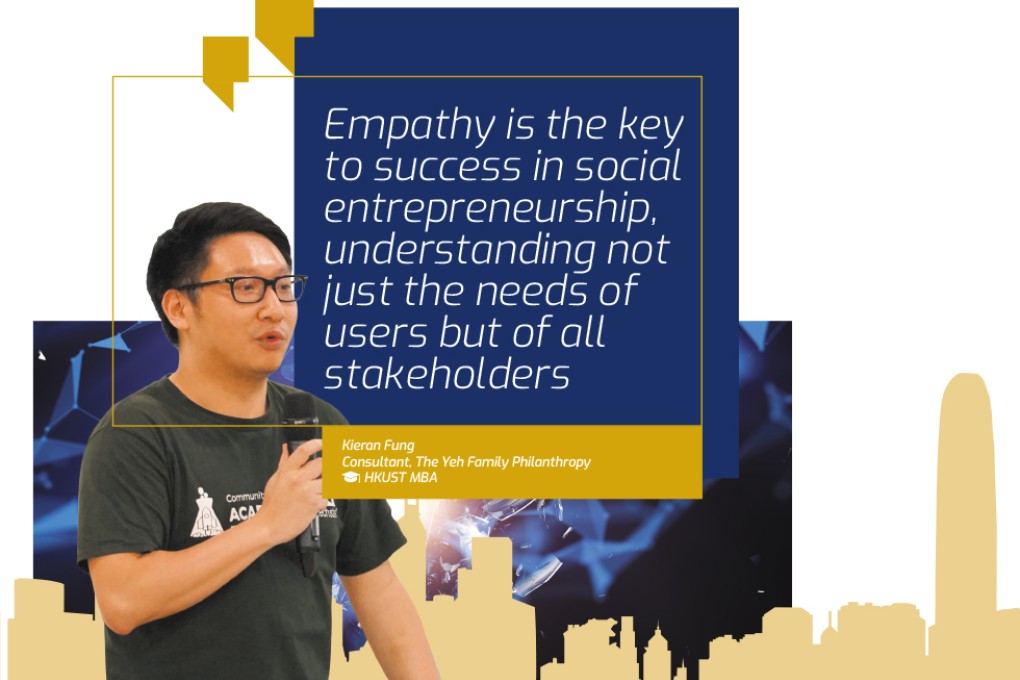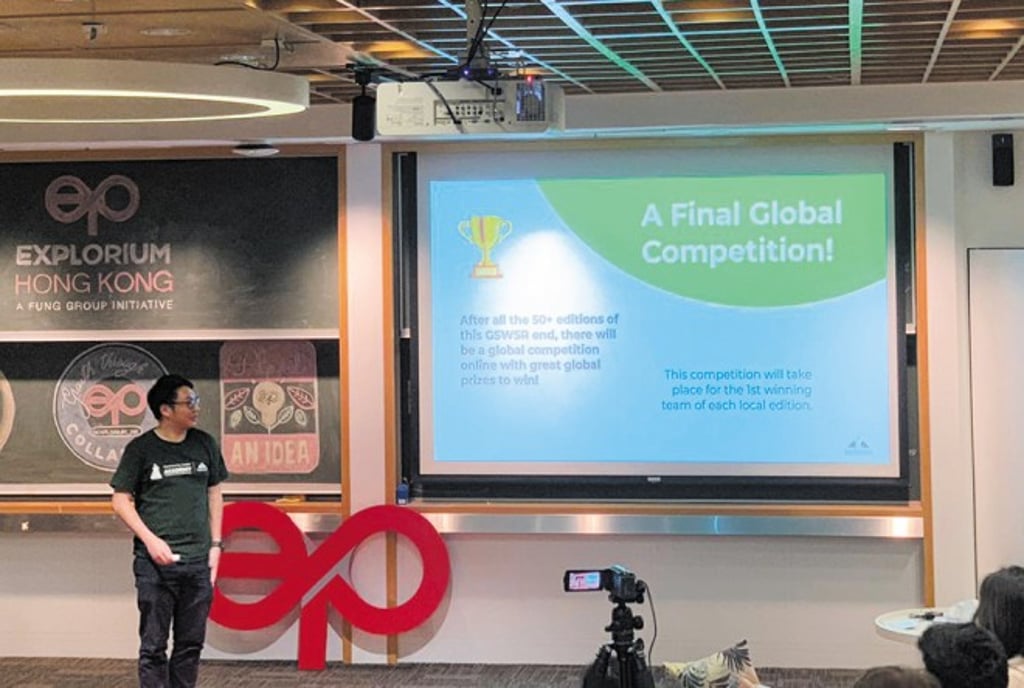Forging a Path to Support Social Entrepreneurs
Social entrepreneurship and venture philanthropy is still an emerging field in Hong Kong. HKUST MBA alumnus Kieran FUNG is at the heart of it all. As a consultant to The Yeh Family Philanthropy, he acts as a bridge between social enterprises and resources, and a connector between venture funds and social innovators.

[Sponsored Article]
“I genuinely enjoy the idea of a collaborative mindset, openness to experiment with different solutions, and the selflessness of most leaders,” says Fung, a startup and tech enthusiast.
Fung is intrigued by the concept of delivering social impact through entrepreneurship. With his own startup experiences, he is passionate about helping other entrepreneurs or like-minded peers to validate their ideas and scale their businesses to create a positive impact.
“I was brought up as a child with the traditional ‘donate and volunteer’ giving model,” he says. “It is exciting that I can combine my entrepreneurship background with social impact in an innovative field, the social innovation sector, to help solve bigger, deeper social issues.”
Before doing his MBA at HKUST, Fung had a computer science degree and a business management background. His career in social innovation is a culmination of his technological understanding and business and leadership knowhow, merged with his personal mission.
Interplay between technology and entrepreneurship
Technology is undoubtedly a powerful tool, but many startups and corporate initiatives fail to apply it when it comes to solving business or social problems. Fung has seen it first-hand within the social innovation sector as well as observed it in general.
Implementing technology can be very expensive and time-consuming for all types of organizations, he says. One piece of advice Fung would give to aspiring innovators is to understand what users truly need.
“To tackle this, understand the needs and daily context of users to come up with solutions,” Fung says. “Methodologies such as design thinking can help tremendously.”
“Instead of putting most, if not all, resources into one iteration of the product or service, channel resources to support multiple iterations so that you can learn from user behaviour and feedback, and then resolve product design issues in future iterations,” he advises. In the world of entrepreneurship, everything is a work-in-progress. Pursuing improvement by iteration could be applied to existing products and services as well, he adds.
A game-changing experience
Fung had decided to forge a path for himself in Hong Kong’s nascent social innovation sector after taking the experiential Social Entrepreneurship and Venture Philanthropy (SEVP) course at HKUST. During the summer of his MBA studies, he completed an internship at SOW Asia, a leading incubator for social entrepreneurship in Hong Kong. He then volunteered as a teaching assistant for four semesters at the SEVP course, and worked at Eureka Nova, a startup incubator from the New World Development Group.
Fung shared his observations on the essential leadership traits of social entrepreneurs. The keys to success are empathy, grit, a growth mindset and communication skills, he suggests.
“Empathy is being able to understand not just the needs of users but of all stakeholders. It is best to have first-hand experiences,” he says. “Grit refers to the importance of not getting deterred by failures or rejection. That doesn’t mean you should not pivot, though.”
“Having a growth mindset means to learn from failures and improve on your insights. Communication is important because even though your vision may be great, if you cannot communicate it properly, you will not attract the talent and resources you need.”
Multiple roles in nurturing social minds
Fung is determined to give back, not only to the society but also his alma mater - HKUST. He says that the diverse MBA student population helped hone his leadership style, so that he can lead and interact more effectively across different cultural contexts. Currently, Fung is a committee member of the HKUST Convocation, connecting HKUST and its alumni across different years.
He is also the President of the Nurturing Social Minds Alumni Association. This alumni association is a platform for over 200 alumni of the social entrepreneurship course to stay informed about developments in the field and to influence social initiatives where they work. This is yet another platform Fung uses to make his “business of giving back” viable.
